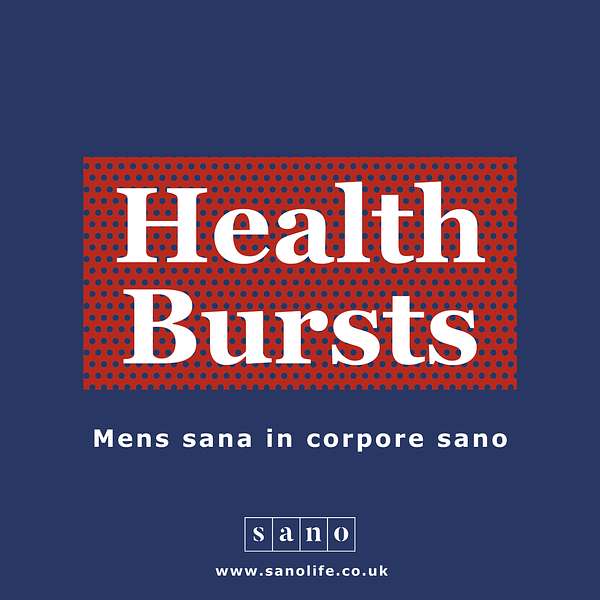
Sano Health Bursts
Sano Health Bursts
Can we obtain vitamin D from our food?
Vitamin D is vital to health. It isn't just skeletal health for which it is important, it has many other roles. We synthesise vitamin D when our skin is exposed to sunlight but the amount made is rarely enough for optimal health. In this episode we explore whether it is possible to obtain vitamin D through our diet.
Welcome to Sano Health Bursts. I’m Heather Richards Nutritional Therapist, Director of Nutrition at Sano and nutrition lead for the College of Medicine. Sano Health Bursts are short, informative, practical sessions discussing food, nutrition and lifestyle, helping you live a healthier life.
Today we are discussing vitamin D and whether we can obtain it from our food. Vitamin D is well known for its role in skeletal health. Vitamin D deficiency is associated with rickets and in the UK has been increasing in prevalence. However it has a much wider role in human physiology than bone health alone. It is important for muscular, cardiovascular, and metabolic health as well as the functioning of the nervous system and immunity.
Vitamin D receptors are expressed by most immune cells and are involved in not only defending against infection but also decreasing inflammation. Vitamin D’s relationship with acute respiratory infection is currently of particular interest but the relationship is nothing new. Studies going back to 2009 show an inverse relationship between vitamin D blood levels and upper respiratory tract infections.
We are able to make vitamin D when our skin is exposed to sunlight. However this can become a challenge for many reasons, such as; living in the northern hemisphere, having darker skin, being of older age, having suboptimal digestive function or even suboptimal magnesium levels.
So are we able to obtain vitamin D from foods to help us optimise our vitamin D levels? Vitamin D is fat soluble and is found in fatty animal products particularly fish; fatty fish like salmon, sardines and herring. The actual quantity of vitamin D within food will vary depending upon the animals access to UVB light and also the vitamin D content of feed.
Wild salmon is reported to contain around 50% more vitamin D than farmed salmon. Comparable data is not readily available for meat and poultry partly due to the wide variation in levels between different species, geographical location and feed.
Humans synthesise vitamin D in the skin via the conversion of de-hydrocholesterol using UVB rays. A similar action occurs in mushrooms. Mushrooms contain cholesterol in their cell walls and when exposed to UVB rays are also able to produce vitamin D. Some mushrooms have been exposed to additional UVB rays by food producers and are labelled as ‘high in vitamin D”. However it should be remembered that 100g of these would provide approximately 200IU (that’s the unit of measurement we use for vitamin D - 200IU is also equal to 5mcg). Compare that 200IU to a serving of wild atlantic salmon that could provide nearly 1500IU.
Although the daily intake requirement given by governments is in the region of 400IU for adults this is based on bone and skeletal health and not for optimal overall health. Vitamin D researchers suggest daily amounts of around 4000IU depending upon personal circumstances.
So the overall message is yes, you can obtain vitamin D from foods although the sources are limited. The highest levels are found in oily fish. Light treated mushrooms can also be an additional source although levels are relatively low. Depending upon your personal circumstances such as geographical location and how much time you spend outdoors, it is unlikely that you will obtain sufficient levels of vitamin D from sun exposure alone. Including vitamin D foods within your diet as well as considering supplementation can help ensure your levels remain optimal.
I hope you enjoyed this episode of Sano Health Bursts. If you want to learn more then subscribe to this podcast, to our newsletter, read our blogs, join our webinars or study with us. Visit our website www.sanolife.co.uk or email us at learn@sanolife.co.uk to find out more and enrol on our courses. Start improving your health today and put the tips I have given you into practice. Mens sana in corpore sano. A healthy mind in a healthy body.
www.sanolife.co.uk
Copyright Sano 2021